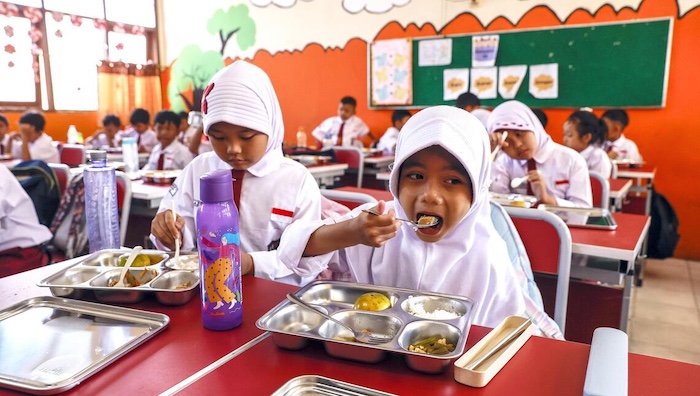More than 800 students across Indonesia have fallen sick this week in two separate cases of mass food poisoning linked to the government’s free school meals programme, officials confirmed on Friday.
The largest outbreak occurred in West Java’s Garut region, where 569 students from five schools suffered nausea and vomiting on Wednesday after consuming chicken and rice meals. According to Nurdin Yana, secretary of the Garut regional government, around 30 students required hospitalisation, while hundreds of others were treated at home. Ten students remained in hospital as of Friday.
In response, local authorities said they would increase oversight of the kitchens supplying meals and temporarily simplify the menu to safer options such as bread, milk, boiled eggs, and fruit. However, officials stressed that the feeding programme itself would not be suspended.
A second outbreak was reported in Central Sulawesi’s Banggai Islands, where 277 students fell ill on Wednesday. The National Nutrition Agency, which manages the programme, announced that meal distribution in the region had been temporarily halted.
Government spokesperson Prasetyo Hadi issued an apology on Friday, acknowledging the repeated food safety lapses. “These cases are, of course, not what we had hoped for or intentional,” he said.
Since its launch in January, President Prabowo Subianto’s flagship free meals initiative has reported over 4,000 cases of food poisoning, according to data from the Institute for Development of Economics and Finance. The think tank’s findings have raised questions about the programme’s safety standards and quality control.
Despite the setbacks, the government remains committed to its expansion goals. The programme currently serves more than 20 million recipients, with plans to reach 83 million by the end of the year. Its budget, already standing at 171 trillion rupiah ($10.32 billion), is set to double in 2026.
Melissa Enoch
Follow us on:








